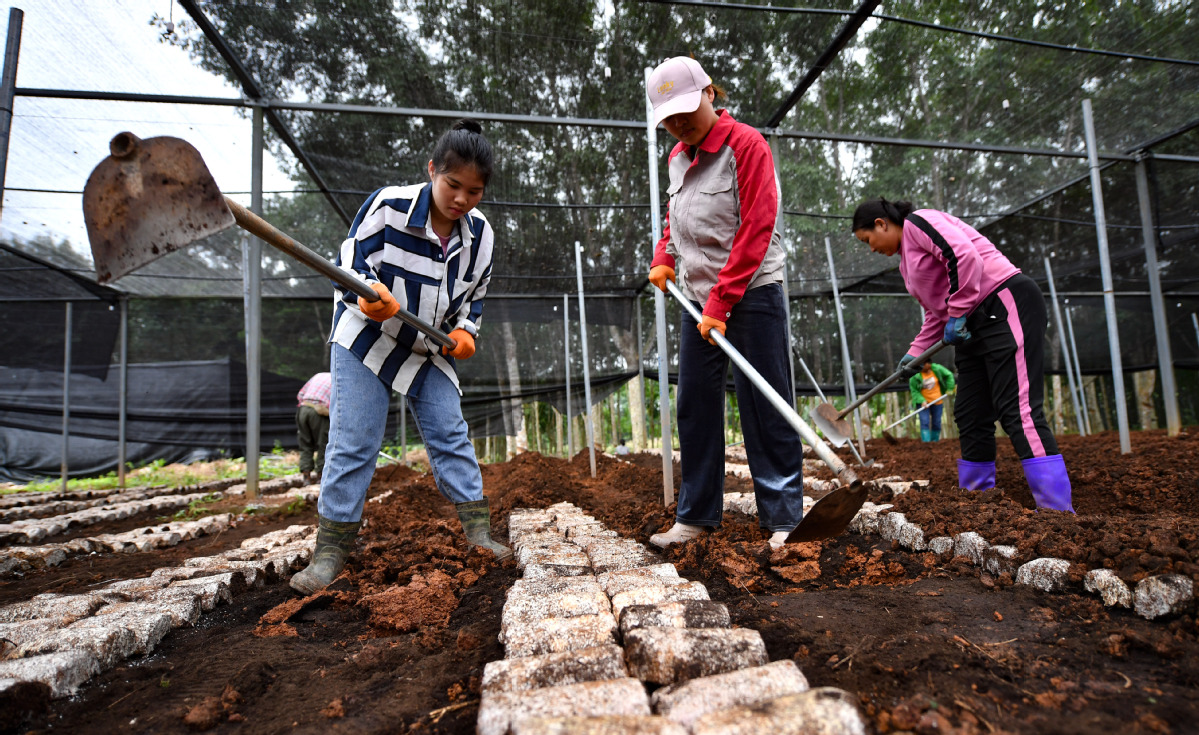
HAIKOU — At the start of the harvest season, the air in Yongchu village is redolent with the aroma of rice wine.
In Baisha Li autonomous county, Hainan province, the ripening of its distinctive Shanlan rice marks the time for villagers to welcome relatives and friends to eat the homegrown rice and drink the wine made from it.
The upland rice varieties cultivated by the ethnic Li people have a rich history, spanning up to 1,000 years, with cultivation mainly for subsistence for much of this period. However, these traditional crops have evolved into grain commodities popular with urbanites in recent years, which has enabled locals to earn extra money.
In Yongchu alone, 184 rural families currently earn a combined annual income of more than 2 million yuan ($280,300) from Shanlan rice and related products.
The village’s products are a prime example of the local specialty industry thriving amid China’s rural vitalization drive.
At the 2023 Boao Forum for Entrepreneurs in Boao, a coastal town in Hainan, local specialties from across the country gained much attention, highlighting how products once confined to mountainous areas or the rural hinterland have found their way to a broader market.
One of the specialties showcased at the event is jin’er, or golden ear, an edible fungus rich in fat, protein, and trace elements such as phosphorus, calcium and potassium.
Grown in Xinhe county, Hebei province, this product has been in short supply in the Beijing-Tianjin-Hebei region due to its widespread popularity in recent years.
This year, the county cooperated with a Beijing-based agricultural company to build a modern agricultural industry demonstration base covering 667 hectares to aid the robust development of the edible fungi industry.
“We have transitioned Xinhe jin’er planting to an intelligent factory cultivation model,” said Chen Long, deputy head of the Hebei Brand Building Research Institute. “Compared with wild species, artificial cultivation offers speed, high yields and a relatively simple planting process.”
Another example of developing demand and growing markets is the coarse grains from Xinzhou, Shanxi province.
Known as the capital of China’s coarse grains, the city is home to 15 categories of coarse grains that feature more than 600 varieties. Annual sales income generated by coarse grain products is 4.4 billion yuan, equivalent to 40 percent of the total sales income generated by the city’s agricultural products.
Liu Zhuoliang, deputy secretary of the Communist Party of China Xinzhou Municipal Committee, said that Xinzhou has 270 market players, over 1,550 cooperatives and more than 550,000 families engaged in the coarse grains industry. One of the reasons for the rise in the popularity of local specialties is the close link between food products and traditional Chinese medicine, said Wang Fengzhong, head of the Chinese Academy of Agricultural Sciences’ Institute of Food Science and Technology.
About half of the 832 national-level counties that lifted themselves out of poverty have developed industries related to food with medicinal properties, playing a crucial role in promoting the vitalization of rural industries, Wang said.
The Ministry of Agriculture and Rural Affairs has launched a program to cultivate a number of high-quality regional public brands with distinct characteristics.
Local authorities said they plan to enhance brand building for their local specialties to further tap the potential of the market. “Currently, regional brands of fungi products all over the country are mostly focused on mu’er (wood ear) and morel, and there is a vacancy in the golden ear category,” said Chen, adding that “Xinhe county is committed to building a strong regional brand.”
Agora que muitas pessoas estão usando smartphones, podemos considerar o posicionamento do telefone móvel por meio de redes sem fio ou estações base.